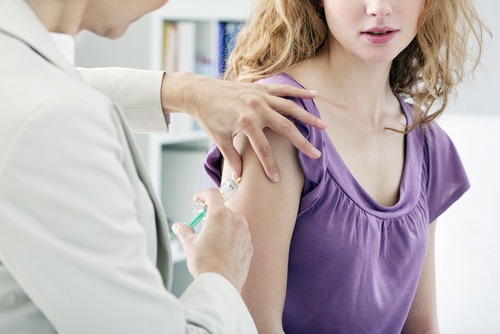
The U.S. Food and Drug Administration (FDA) announced Monday that the Pfizer-BioNTech vaccine is now authorized for emergency use among adolescents ages 12 through 15.
While children have seemingly been less susceptible to COVID-19 at large, they can still be carriers, and plenty have experienced the worst the coronavirus can offer. From March 1, 2020, through April 30, 2021, approximately 1.5 million COVID-19 cases have emerged among those ages 11 to 17, according to the Centers for Disease Control and Prevention (CDC). Until now, however, the FDA’s EUA only applied to those 16 years of age and older.
“Today’s action allows for a younger population to be protected from COVID-19, bringing us closer to returning to a sense of normalcy and to ending the pandemic,” Dr. Janet Woodcock, Acting FDA Commissioner, said. “Parents and guardians can rest assured that the agency undertook a rigorous and thorough review of all available data, as we have with all of our COVID-19 vaccine emergency use authorizations.”
The FDA made its decision after it was determined that the known and potential benefits of the Pfizer-BioNTech vaccine in adolescents would outweigh any known and potential risks. That vaccine is administered over two doses, spread three weeks apart. Adolescents will be given the same dosage and dosing regimen as the rest of the population.
“Having a vaccine authorized for a younger population is a critical step in continuing to lessen the immense public health burden caused by the COVID-19 pandemic,” Dr. Peter Marks, director of the FDA’s Center for Biologics Evaluation and Research, said. “With science guiding our evaluation and decision-making process, the FDA can assure the public and medical community that the available data meet our rigorous standards to support the emergency use of this vaccine in the adolescent population 12 years of age and older.”
Authorization followed a trial of nearly 2,300 adolescents, half of whom were given the traditional two-shot regimen, while the other half received a placebo. Blood samples were taken and measured for antibody levels.
The EUA will remain in effect until the events justifying its emergency use have passed. It is not licensure of the vaccine, nor does it mean this authorization cannot be revised or revoked at a later date. Nevertheless, the vaccine is the first for COVID-19 to be tested and authorized among younger adolescents, although other companies already are or have plans to pursue that same goal.




